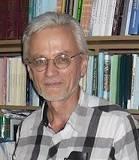Real ‘standup guys’ avoid sitting down
Knowledge workers of all varieties are reviving the old chest-high desk as the best way to stay on their toes. Indeed, if you're having trouble keeping a clear mind when you stare at your computer screen (now, for example), maybe it's not your eyes. You may be suffering from something as simple as the ill effects of sitting down.
An American woodworker that employs old-fashioned Amish craftsmen is selling its standup desks to customers in Dubai, Germany, the United Kingdom and elsewhere as a cure for everything from backache to scatterbrain disorder.
The evidence of how standing keeps you sharp is more than anecdotal. A physiologist friend tells me the standing position eases strain on the skeletal structure and unbends the veins and arteries that move blood to the brain and around the organism.
We are apparently built to get up on our hind legs and stay there.
One of the most enthusiastic practitioners of the standup desk was Winston Churchill, who turned his talents to a six-volume history of World War II after being voted out of office in 1945. (He needed the money.) The late William Manchester wrote in "The Last Lion" that Churchill loved his standup desk at Chartwell, the family home. He worked "not at his father's magnificent mahogany desk with gleaming claw feet, but at a high Disraeli desk of unvarnished deal with a slanting top, designed by Winston and fashioned by a local carpenter".
In fact, Churchill dictated his books reclining while his secretary typed his well-formed sentences on a typewriter especially muffled for minimum disturbance. But he made his extensive galley edits - between six and 12 drafts go-arounds with his editors -- scrawled in pencil at his standup desk.
"The worst thing about writing is the sitting," says science writer John Moir, author of "The Return of the Condor", of Santa Cruz, California. Mr. Moir tells me his "mental acumen" is boosted standing up. "The trouble with sitting down to write is that it puts you in a semi-quadriplegic state. You breathe shallow breaths and move only fingers and eyes."
Moir says he wrote his book in alternating stages of standing and sitting throughout the workday. "Do the back and forth," he says. "That's what keeps the body alert."
The standup desk has been around since medieval monks hand-copied religious manuscripts, and many of these desks were used in early America, including by Thomas Jefferson and Benjamin Franklin. Now they seem to be coming back.
Their use is most widespread in Denmark, where furniture-making and concern for good health converge in the workplace.
What piqued my interest was a recent photo of a very alert-looking Robert L. Nardelli, CEO of Chrysler LLC., standing proud at his new elevated desk. "He thinks better on his feet," said the accompanying story.
Digging further, I found evidence of a resurgence of interest in what would now be called this "ergonomic device". Donald Rumsfeld, the former U.S. Secretary of Defense, favored a standup desk, starting something of a Pentagon trend, and two were ordered last year by the White House.
Jim Gattuso, president of standupdesks.com, a furniture manufacturer in Akron, Ohio, says his 400-plus customers a year tell him the erect posture aids their concentration. He ships desks worldwide to such major corporations as American Express and Ford Motor Company. "The Pentagon is one of our biggest accounts," he tells me. His largest client base is lawyers, as high as 50 percent of sales in some years.
Some CEOs are going for Gattuso's chest-high conference tables as a way of keeping their executives wide awake while they talk.
"It's about being sharper, about being energized," says Dr. James Levine of the Mayo Clinic in Minnesota.
Buttressing the trend is academic study to determine what underpins the revival of standups. Cornell University has investigated the effects on standup knowledge-working and concluded in one four-week study that 57 percent of the participants reported a rise in their productivity compared to sitting at a standard desk. A 1991 Boeing Study found that working erect reduces stress on the back by 48-80 percent.
Dr. Levine says in his cautious medical way, "If sitting is to blame, standing has got to be the solution." He has gone the standup industry one better, though, combining the high desk with a slow treadmill to keep all the body's systems working. "I spend my entire workday walking at one mile an hour," he says. "You can work off pounds without missing a single keystroke."
Only in America, so far.
Should you wish to publish your own article on the Facts & Arts website, please contact us at info@factsandarts.com.
This article is brought to you by the author who owns the copyright to the text.
Should you want to support the author’s creative work you can use the PayPal “Donate” button below.
Your donation is a transaction between you and the author. The proceeds go directly to the author’s PayPal account in full less PayPal’s commission.
Facts & Arts neither receives information about you, nor of your donation, nor does Facts & Arts receive a commission.
Facts & Arts does not pay the author, nor takes paid by the author, for the posting of the author's material on Facts & Arts. Facts & Arts finances its operations by selling advertising space.



















